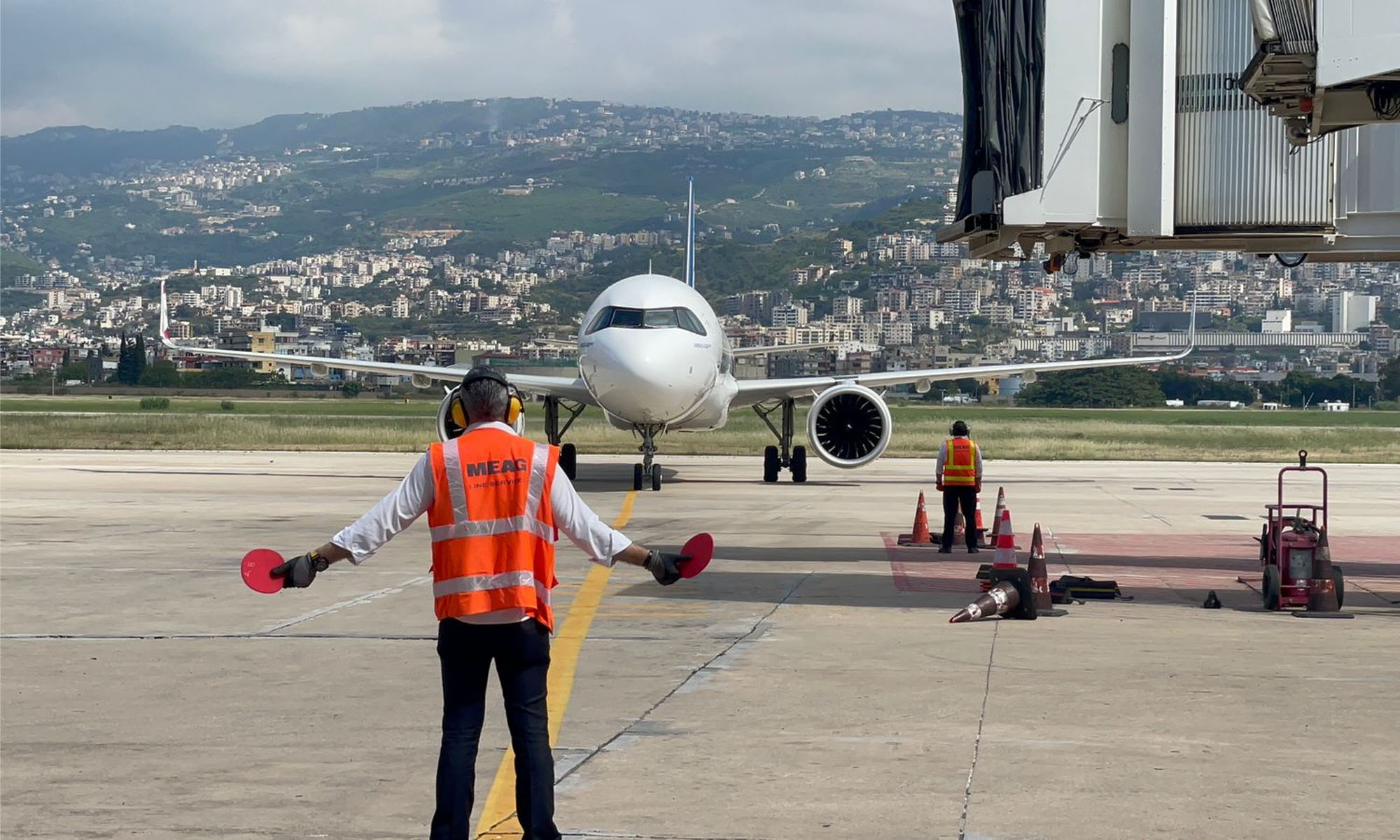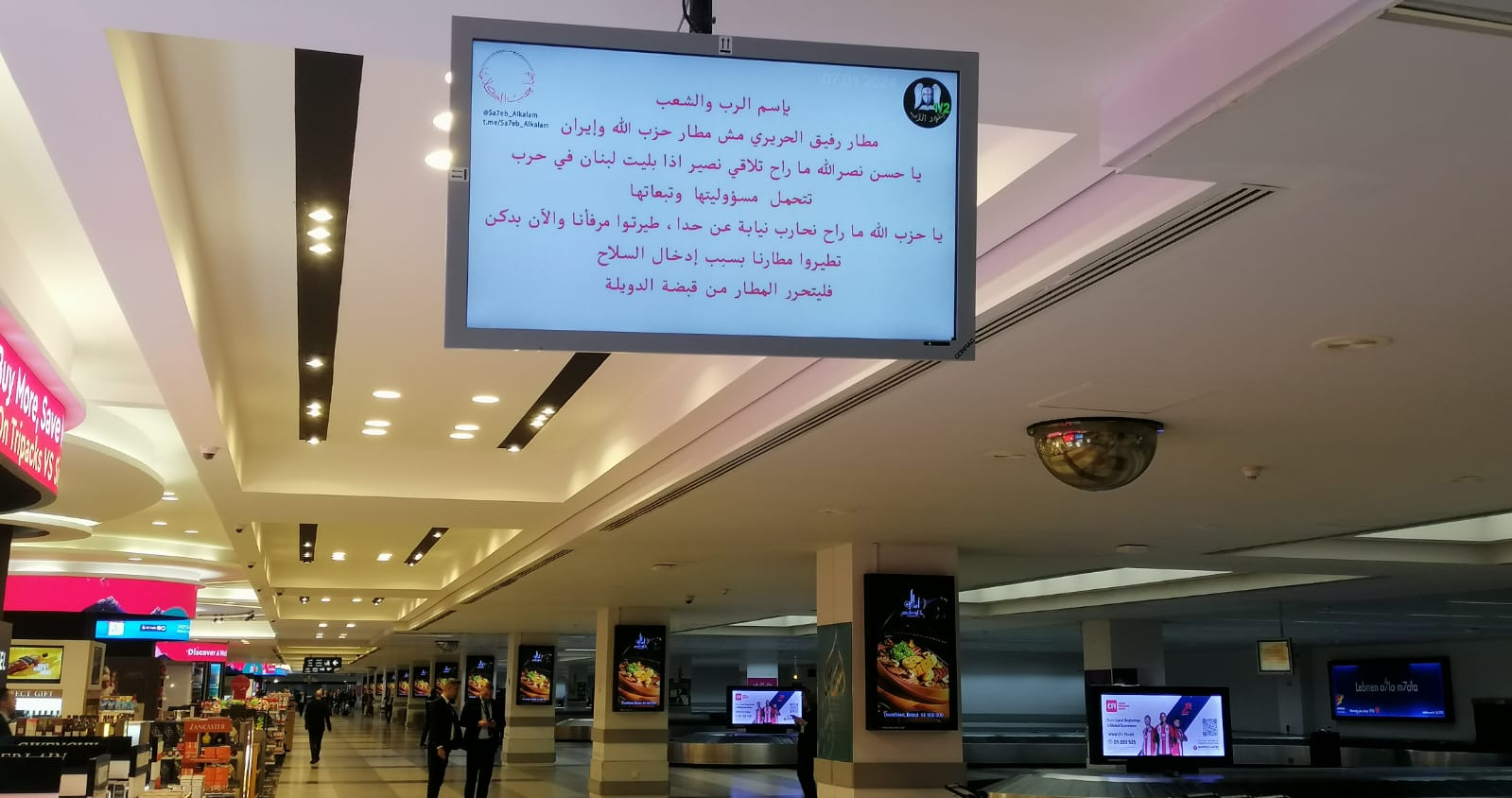News
Beirut Airport Cybersecurity Incident: How It Unfolded
On Sunday January 7, Rafic Hariri International Airport’s screens began displaying political messages instead of flight information.

On Sunday evening, January 7, 2024, Beirut’s Rafic Hariri International Airport experienced a cyber attack that resulted in political messages appearing on its departure and arrival screens, disrupting normal flight information and temporarily halting luggage belt operations.
Lebanon’s Minister of Public Works and Transport, Ali Hamieh, addressed the public the following day, expressing a commitment to uncovering the perpetrators of the incident and reassuring the public that the airport remained fully operational.

Meanwhile, Fadi El-Hassan, Director General of Civil Aviation, reported that the issues with the airport’s screens had been resolved, and normal functionality had been restored across passenger terminals, including arrival and departure halls.
Despite these developments, official statements from Lebanese authorities regarding the incident were yet to be released, as investigations continued under the oversight of the Lebanese security services, as confirmed by Minister Ali Hamieh.
As of now, no information has surfaced regarding the compromise of airport data, such as flight details, passenger records, or other sensitive information. However, technical experts at SMEX, a nonprofit organization dedicated to advancing digital human rights across West Asia and North Africa, say that the severity of the cyberattack reveals clues on the motives behind it.
Also Read: The Largest Data Breaches In The Middle East
Members of SMEX’s technical team raised concerns about the cyber breach, stating, “If the perpetrators were able to manipulate screen content and disrupt the Baggage Handling System (BHS), it indicates the possible presence of malware within the compromised system”.
SMEX’s technical experts have also outlined several conceivable scenarios for the attack:
- The breach may have originated from the airport’s internal network, possibly involving the installation of malicious software by an individual with insider access to the airport’s systems.
- Another possibility is the compromise of an employee’s device through social engineering or a phishing attack, typically delivered via email or other deceptive means.
- An employee with privileged system access might have been coerced or manipulated through blackmail, bribery, or threats, facilitating unauthorized entry into the airport’s systems.
Lebanese authorities have yet to pinpoint the root cause of the airport cyberattack, leaving room for speculation about potential sources, which may include internal, external, or even governmental actors.
News
Mamo Completes $3.4M Funding Round To Enhance Fintech Services
The startup will use the influx of cash to expand into Saudi Arabia and across the wider GCC while improving its product offering.

UAE-based fintech Mamo has announced the completion of a $3.4 million funding round that will help the startup extend its market presence and improve its product offering. Investors included 4DX Ventures, the Dubai Future District Fund and Cyfr Capital.
Mamo’s platform offers “payment collection, corporate cards and expense management” to help small and medium-sized businesses consolidate and streamline their operations. With the latest influx of capital, Mamo will further develop its comprehensive suite of services and begin testing its product lines in Saudi Arabia, further extending its footprint across the GCC.
Imad Gharazeddine, co-founder and CEO of Mamo, stated: “We’ve been in the market for a while now and are incredibly proud of what our team has achieved. The holistic and expansive nature of our product offering has helped us continue to grow sustainably. This additional funding will allow us to reach our medium-term goals even faster. The support from new and existing investors is a testament to our strong expertise and the ability to deliver on our customer promise”.
Daniel Marlo, General Partner of lead investor 4DX Ventures, added: “We have immense trust in Imad’s vision, leadership and Mamo’s innovative approach to provide a user-friendly and comprehensive financial solution for SMEs that makes financial management more accessible and efficient. We are proud to partner with them and support their mission”.
Also Read: A Guide To Digital Payment Methods In The Middle East
Amer Fatayer, Managing Director of Dubai Future District Fund’s investment team, also commented: “Mamo’s localized product lines serve as an infrastructure for SME payments and spend management in UAE, a segment that is underserved by the country’s current banking infrastructure. The team has taken a product-first approach to consolidating SMEs’ financial journeys and building a fintech solution deeply embedded in a business’s core operations”.
To date, Mamo has raised around $13 million in investment funding and now boasts a team of 30 people. The company’s intuitive financial services platform has allowed over 1,000 businesses to consolidate their financial operations and significantly reduce payment fees.
-

 News4 weeks ago
News4 weeks agoAmazon Prime Day 2024: Get Ready For 6 Days Of Amazing Deals
-

 News4 weeks ago
News4 weeks agoSamsung Unpacked 2024: What To Expect From The July 10 Event
-

 News4 weeks ago
News4 weeks agoCoursera Report Shows Surge In UAE Interest In AI Upskilling
-

 News4 weeks ago
News4 weeks agoMeet Dubai’s Groundbreaking Smart Robot Delivery Assistant















